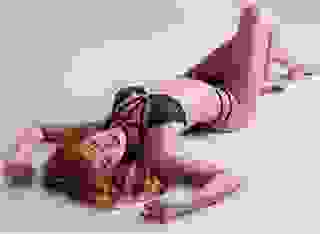- Novels and Novellas
- Varna Ch. 12
Note: You can change font size, font face, and turn on dark mode by clicking the "A" icon tab in the Story Info Box.
You can temporarily switch back to a Classic Literotica® experience during our ongoing public Beta testing. Please consider leaving feedback on issues you experience or suggest improvements.
Click hereCaptain Urbo was good as his word. He asked for an interview, and brought two young men with him, wearing hoods. Sanatha and I received them alone, with only Murzosh - and my magic - to protect us.
- "These are my friends, Telek and Kalju." said Urbo. "They're willing to go to Galtin's Port."
- "In what capacity?" asked Sanatha.
- "On their own, Lady. If you sent someone with an official rank, they'd never get anywhere near Yavantay or Tir Beksha. Most likely they'd end up knifed in the back the day after they arrived."
- "So they'll just go there and ...?"
- "They'll join Yavantay. Or Tir Beksha - whichever is easier. Best way to find out what's going on." said Urbo.
- "Won't Yavantay recognize them?" I said. "You said yourself that he knows everyone."
- "He does, Lord - if they're sailors or merchants. But Telek and Kalju are landsmen. They were born in the village next to ours."
I remembered the story Urbo had told us, about his father, and the nobleman who had hoarded grain while his people starved.
- "Tir Beksha." I said.
Captain Urbo nodded. "Exactly, Lord. You can trust these two."
- "Could the present Tir Beksha recognize them?"
- "No. Common folk like us are beneath the notice of a Tir's son. Besides, Telek and Kalju were just children when their father was killed in the uprising. They were taken to the outskirts of Whydah, and grew up on a farm."
Friends of Urbo's then, with a grudge against Tir Beksha. That sounded like reasonable motivation.
- "How will they get there?" asked Sanatha.
- "They'll need two purses, Lady. The first will be to book passage on a Portoan ship headed for Galtin's Port."
- "A Portoan ship? Can't they go one of ours?"
- "Yavantay's gone pirate, Lady. He has a small fleet of his own, now. No Varnan ship would be safe from him - unless the Captain and whole crew were prepared to join Beksha. There'll be no trade carried in Varnan bottoms until Yavantay has been dealt with."
- "And the second purse?" I asked.
- "To get out of Galtin's Port, once Telek and Kalju have learned what you want to know."
- This could be very dangerous." said Sanatha. She and I both had vivid memories of Galtin's Port, a massive metropolis where money ruled, and life was cheap.
- "They're aware of that, Lady." said Urbo.
***
The Eastern Lords - Tir Caenog, and Gerdars Dergun and Ostro - asked to see me. I received them in one of the least damaged rooms in my uncle Esin's house. Tir Caenog had evidently appointed himself spokesman for the group.
- "There are rumours in the city, Lord, that you used magic in the fight against your brother."
- "I did."
That brought him up short. He hadn't expected that answer.
- "But ... people are saying that you ... that you're a wizard."
- "I wouldn't go so far. I used magic; so did my brother Nathal. Mine was better - that's all."
Caenog didn't look reassured; even Dergun seemed a little apprehensive.
"My Lords: my father had all of his children tutored in magic by Master Durgulel of Portoa. It was just another part of our education. Some of us were more proficient. But I cannot read minds or turn men into toadstools."
They were the third delegation to ask for an audience. Dozens of people had seen me kill Nathal with magic, and the tale had spread all over Whydah and through the ranks of our army. Sanatha believed that it hadn't hurt my reputation, but rather might have enhanced it. The stories were exaggerations, though, and they did make some of our supporters nervous.
I didn't tell any of our allies that I was, in fact, feeling stronger than ever. As Rhigen and Glasha had suggested, using my magic and pushing my limits had increased my skills and my power. I could draw in a surprising quantity of aether, as easily as taking a deep breath. Then I could continue to gather the magical essence, until I had accumulated a staggering amount.
I hadn't reached the edge of the cliff that Rhigen had warned me about, but I knew it was there. I had reacted to Nathal instinctively; I would be very careful about taking risks in the future.
We held a council of captains, to discuss that future. I invited Urbo, Bathene Esin and Benaz Corig to join us, as they represented powerful groups in Whydah; the ladies' names still carried great weight in the city.
Durgat was well enough to join us. Aided by Sanatha's alchemy, he seemed to have made a full recovery. I hoped that his confidence had not suffered; as far as I knew, that encounter with Nathal was the first fight he'd ever lost.
Sanatha and I had discussed what we wanted to do before the council, and worked out our first serious disagreement: I wanted her to stay in Whydah, to take charge of the city while I advanced against Merik. She wouldn't hear of it.
- "What if something happened to you? I'd be miles away - too late to do anything about it. You've been pretty good at treating me as your partner so far, Tauma. Don't make me your subordinate now. And don't try to keep me away from the action, either."
- "Alright, if that's how you see it. Then who do we leave in Whydah?"
Neither of us felt that we should simply announce our joint decisions - better to let our friends and allies have a say in the making of decisions. It was entirely possible that some of them would see possibilities (or dangers) that we hadn't. Even if we chose to do the exact opposite of what they recommended, the councillors would have a chance to express their opinions, and to convince others. It might also be beneficial for all of us to hear opposing views.
Sanatha and I had already agreed that we shouldn't overrule the entire council, if they disagreed with us.
She opened the proceedings.
- "We are here to ask your advice. Many of us have lost family members and friends, but we also won a notable victory. It falls to us now to decide what to do next. Feel free to speak when you wish - we won't stand on ceremony. But I will cede the floor to my brother, first, so that you can hear his plan.
I stood up. "Most of you already know that my brother Nathal tried to kill me - more than once. But some of you may not know that my brother Merik, with the assistance of Tir Storum, murdered our father. They concealed their deed, and then summoned allies to Elmina, so that they could seize power. If Merik would stoop to killing his own father, then I believe you can guess what he might have done to his brothers. His sister, though, was promised to Tir Peneda, as a reward for his participation in their plot."
Sanatha kept a straight face, but many could imagine how she would have felt, to be forcibly married to a man three times her age.
"My point is this: there can be no peace with Merik. It's not just a case of what he's done, but of what he will do. I believe that it would foolish to sit still, and cede the initiative to him. Consider what might happen to the families and lands of Hurmas and Sezima, which are just southwest of Elmina. They could face retaliation for having supported us. While we sit in Whydah, our enemies could strike at Souglad, or at Gerdar Azren's lands. They could also lash out at Calep and the lands of our eastern allies."
That had to register with them. Everyone was thinking of the danger to their families and homes.
"I suggest that we take the initiative. If we force Merik to concentrate his forces at Elmina, then your homes will be safe. Those are my thoughts on the matter."
- "Now we wish to hear yours." said Sanatha.
We had gathered our captains before, but that was most often just to impart instructions, so that we wouldn't have to repeat ourselves half a dozen times. This was different, in that we were offering them the opportunity to speak.
Gerdar Tanle opened the ball. We'd already told her what we were planning, and she'd asked a pertinent question. She repeated it now, for the benefit of the others.
- "If you advance on Elmina, which route would you take?"
There were only three possibilities: the western bank of the river, the eastern bank, or straight up the river, by boat - as Nathal had done. It was a good question; if we came down on the western bank, it would be near impossible to defend the east from Merik's retribution.
Most of Elmina - probably four-fifths - lay on the eastern side. Anyone who captured the western district would then have to fight their way across the bridges.
- "The eastern bank." I said. That would leave her home, and Azren's undefended. Likewise, the elven lands would be unprotected. But to stay on the eastern side of the river would only reverse our problems.
- "What do we know of Merik's army?" asked Tir Caenog.
- "We believe that he has 800 or 900 men." said Sanatha.
- "But those numbers will swell, will they not? Those of your brothers' factions who escaped will seek to join him."
- "Some will. I doubt that any of the Moksha retainers would. But many of Nathal's men could go to Elmina, and fight against us again."
- "Whereas we," said Caenog, "will have to leave troops to defend Whydah. When added to our dead and wounded, it leaves our army sadly diminished."
Tir Caenog liked to talk. He especially liked to have an audience. The man was something of a groaner, as well, always able to see the thorns rather than the rose. But he was on our side, and I couldn't fault him for his conduct in battle.
"And how many cannon will Merik have?" he said.
- "Quite a few." I admitted. "But we would never attack those cannon directly." I didn't say that we wouldn't attack them - only that we wouldn't do so directly.
- "Could we hear your plan, Lord Tauma?" asked Sezima. "Even a rough idea would give us something to go on."
- "Alright. It seems fairly obvious that Merik will have superior numbers, cannon, and the advantage in terms of cavalry." That last was simple fact: everyone present knew of Peneda's Hundred horse. Most Varnan nobles could raise ten or twenty horsemen. Tir Caenog had brought 30. But Storum and Tir Alit, on Merik's side, had 30 each, and Gerdars Kilfa and Orchir another 30 between them.
We would be outnumbered 2 to 1 in cavalry - or worse, if many of Nathal's riders went to serve our enemies.
"But those advantages cancel each other out. The cannon are mostly immobile. An attack on Elmina would be too costly for us. By contrast, their horsemen are highly mobile, but they would prefer to fight outside the city."
Sezima grinned. So did Yazgash and Enneiros, who also saw what I was suggesting.
"We must force Merik to choose." I said. "Stay behind his walls and cannons, and forfeit his superiority in cavalry - or come out to fight, and leave most of the guns behind."
- "And if he does that," said Sanatha, flashing a look at Tir Caenog, "then he would have to leave a garrison - nullifying his numerical edge."
- "Very nice." said Gerdar Tanle.
- "We have our own advantages." I said, including them all with a slow wave of my hand. "Experience. Capable leaders. And flexibility. We have men, elves, and half-orcs."
We had other advantages, which I didn't mention. The fey. The fact that Merik was stupid, while Sanatha and I were not. We weren't infallible, by any means, but I thought that Merik could be tempted into at least one major mistake.
We would have to lure him out of Elmina.
Meanwhile, there were other decisions to make. Hurmas was mildly surprised when we asked him to stay behind, after the council.
- "We have a great favour to ask." said Sanatha.
- "I'm at your service, Lady."
- "We want you to take command in Whydah, while we're gone." I said.
- "Me?"
- "You have no ambitions here." said Sanatha. "No one will accuse you of attempting to seize power in Whydah, or of feathering your own nest. You're honest, and good with people."
- "Thank you, Lady. But ... I know so little of the city, and what they need ..."
- "That's why we'll leave you excellent advisors: Captain Urbo. Bathene Esin. Benaz Corig. You'll have your own men, plus our wounded. We'll also leave 100 more men and 30 half-orcs - admittedly, some will be a little long in the tooth, and some a little young, but they'll still look impressive. Urbo says that the ship captains and their crews will support you."
Hurmas understood immediately that we had thought this through, and that we truly considered him the best choice. He didn't make it difficult for us.
- "I will do my best."
- "Thank you, Hurmas." said Sanatha.
- "What should my priorities be?"
- "Rebuild the city, as best you can." I said. "We'll have to leave our prisoners here - you can't afford to be too lenient with them, yet. Hopefully we won't be too long, down south. Listen to Urbo and Bathene - they know what Whydah needs. Give Benaz Corig some high-sounding, largely unimportant task."
Hurmas grinned at that. "Anything else?"
- "Worst-case scenario: some unforeseen threat. We're not asking you to die gloriously in defence of Whydah. There's been enough of that. If you can't hold, get our people out."
- "Understood."
Sanatha smiled at him. "Thank you again, Hurmas. Tauma always says that he's very fortunate in his friends. You constantly remind me that he's right to think so."
***
There was no need for undue haste, but dawdling wouldn't serve us all that well, either. We marshalled the troops we were taking south, and set out along the eastern bank of the river.
We had almost 350 half-orcs, and as many men. Some of the men were Esin retainers, or former followers of the Mokshas. I wasn't certain how far we could trust them, if we could rely on them at all. In addition, we had Enneiros and 50 elven archers.
I'd sent Alissara and most of the elves to the western bank of the river.
- "Remind me again." said Sanatha. "Why are we doing this?"
- "To deter Merik from raiding elven lands. But also to show him a smaller army. We have to give him every reason to come out of Elmina and fight us."
- "And what if they attack us while the elves are on the wrong side of the river?"
- "Then we hold for a day, and bring the elves over to our side. Why do you think that Glasha is over there, and not with us?"
Sanatha knew as well as I did why I'd sent Glasha with her father and the fey. My lover would be time-walking when she could, focused entirely on me. I had fallen into the habit of talking to myself, and when Saska or Sanatha were nearby, I explained aloud what I was thinking, and why. I wanted to give Glasha every opportunity to pick up the information she needed, so that she could pass it on to Alissara.
As we marched south, we picked up bits of news. Just as we'd feared, Gerdars Kegen and Khuter, allies of Nathal, had escaped from Whydah, and then gone to Elmina to join Merik. Quite a few of Tir Pyera's followers had done the same. I couldn't really blame them, after I'd hanged their lord - even though he'd entirely deserved it.
The first thing we needed to do was to draw our enemies out of Elmina. Its walls were not exceptionally high, but they bristled with cannon, and we couldn't afford to take massive casualties storming the city.
But I believed that they would come out when they learned that our army was smaller than theirs. Merik was a bully, but he loved bold, dramatic gestures - especially when he was the centre of attention. Tir Peneda, too, would prefer to fight outside the walls, where his horsemen could maneuver. Tir Storum would be more cautious; we just needed the other two to overrule him.
In an effort to assist that process, I sent a letter addressed to Tir Storum, as commander of the rebel forces controlling the capital. In it, I demanded that he surrender to us. The letter contained no mention of Merik at all, which would infuriate him. I also included an offer of pardon for Tir Peneda, on the condition that he not fight against us again.
- "Mind games?" said Saska.
- "It can't hurt."
Meanwhile, we advanced in no great hurry. I was looking for a place, a site where we could fight with an advantage. I sought a good defensive position, with cover from cannons, but also with its flank and rear covered, to protect us from cavalry.
- "I'm not sure that such a place exists." said Gerdar Tanle.
- "But we need an edge." I said.
I spent considerable time and energy on the problem. I gathered large quantities of aether, and thought about every aspect. Unfortunately, Gerdar Tanle was right: this wasn't a game. I couldn't afford to sacrifice pieces in order to achieve a victory - those pieces were our friends and supporters.
My tactical ideas were largely based on what I'd learned from Aludar's books. My entire military experience consisted of two brushes with Peneda's horsemen, and the battle for Whydah - the Second Battle of Whydah, as it was already known. The first two were simply instinctive reactions to the presence of enemy cavalry, while the battle was ... an opportunity presented by the foolishness of my brothers Nathal and Toran. It was a gift, more than anything.
Now I had to win a set-piece battle, against an enemy who had significant advantages.
Gerdar Tanle tried to help. "Let's try this." she said. "What if I pretended to be Merik?"
- "Alright."
Gerdar Tanle quickly taught me that war was no game, with an equal number of equally powerful pieces on both sides. I knew that - but she drove home the lesson.
- "I bring up cannon." she said.
- "I retreat."
- "I cut off your retreat with my cavalry." she said.
I could only nod. "That's the problem, isn't it?"
- "We want an infantry battle, and they have two very effective ways of preventing that. You need to find a way to impose one on them."
- "How?"
- "How did you do it at Whydah?"
- "I didn't do anything! Nathal delivered the city for his mercenaries to sack, and then started celebrating too soon. The left the door wide open - all we had to do was walk in. My only concern was to get it started before darkness fell."
- "Weren't you worried? They had superior numbers, after all."
- "We had all the advantages: the half-orcs, the elves and the fey ..."
- "We still have those." she said.
- "We also had near-complete surprise. They didn't know that we were anywhere near them."
- "Yes." said Gerdar Tanle. "The greatest advantage of all."
- "We aren't going to have surprise on our side this time." I said.
- "Why not?" asked my wife's mother.
She was a clever woman. I kept going over our advantages, and thinking of ways to combine those with some sort of tactical surprise. The enemy would know that we were there, of course, but ... and then it came to me. It wasn't fully formed, at first, but as I teased and pulled at it, the idea grew.
Without the aether, and mind magic, I don't believe that I would have thought of it. Once I had, I still wasn't certain that it could be done. But it was a possibility.
When we arrived at the village of Granje, and I saw the ridge, that possibility began to take on the outline of a plan.
Granje was 3 days' march from Elmina - probably five, if they were dragging cannon.
- "Unless they bring the cannon by boat." said Sezima.
I could have kissed him. "You're a genius." I said.
I spent the rest of that day and most of next talking to myself, so that Glasha would be aware that Merik's men might be bringing cannon down the river. Elf archers on the western bank could force those boats to seek shelter on the eastern bank.
It might seem like a minor nuisance, but every little bit helps - and I wanted to remind the enemy leaders that the elves were still on the opposite side of the river.
Meanwhile, our army occupied the village of Granje, and the small groves of trees to the east, which provided the villagers with a strong windbreak, as well as acorns for their pigs.








